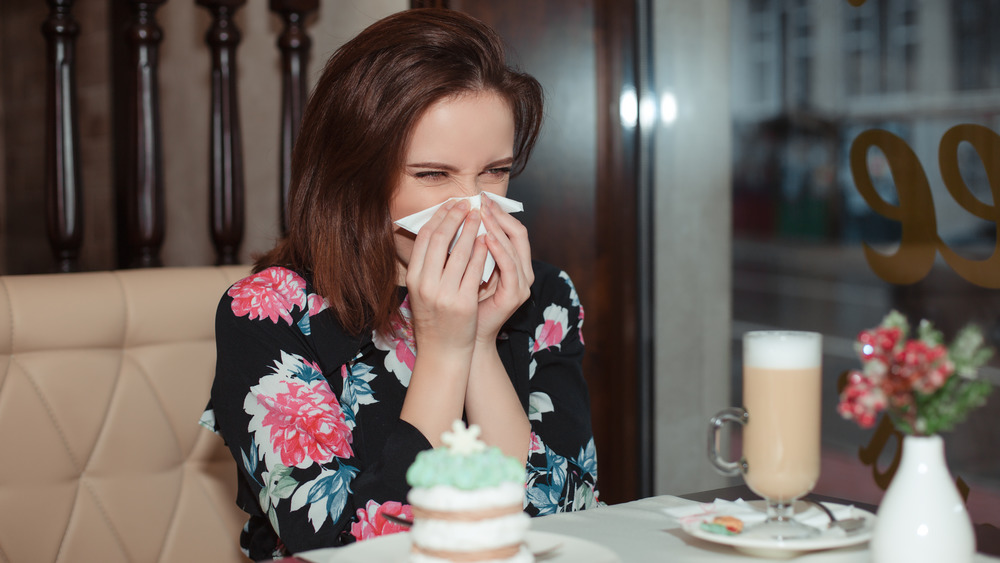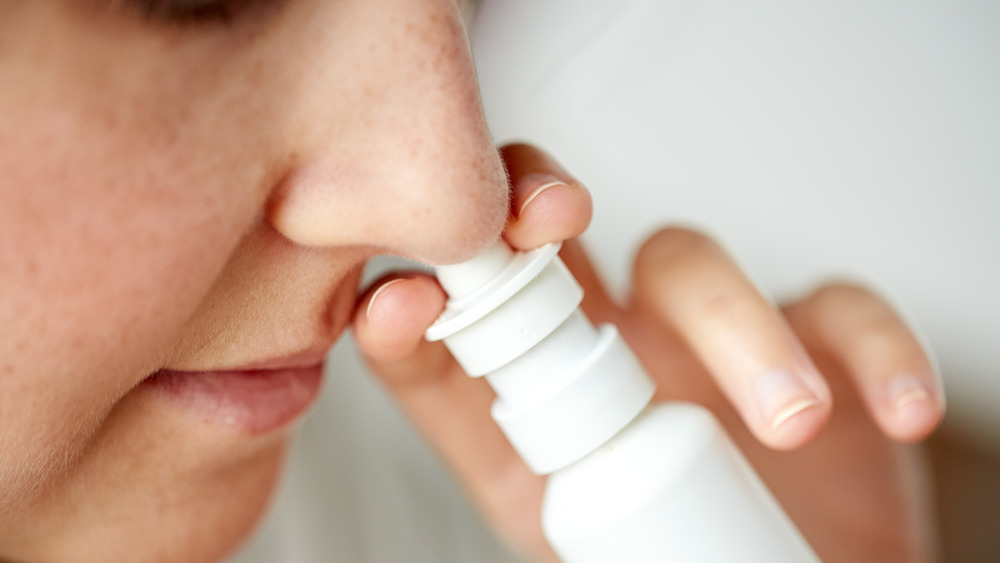If You Get A Runny Nose While Eating, This Is Why
Surely you're used to your nose running when you have a cold, when you cry, smell something pungent, or when you are allergic to an irritant in the environment. But why does it happen when you're eating or right after?
Medically speaking, whenever the nose is stuffy or drippy, it's called rhinitis. There are a few forms of rhinitis: allergic, nonallergic, vasomotor, and mixed (per Healthline). The one that happens when you're eating is called gustatory rhinitis. When you're chowing down on something delicious, of course your taste buds are excited, but then suddenly your nose gets involved. Within minutes, it may start to run excessively from one or both nostrils. It's usually just a thin, watery liquid — nothing too gross — but the annoyance factor may be pretty high. After all, who wants to blow their nose at a restaurant table?
Gustatory rhinitis is considered a nonallergenic rhinitis, which means the immune system is not involved. Instead, according to a paper published in 2010, gustatory rhinitis is caused by stimulation of sensory nerve endings in the respiratory and digestive tracts and can be associated with aging (aka senile rhinitis), trauma, or dysfunction of nerves that originate in the brain.
Triggers for gustatory rhinitis can be any kind of food or ingredient, but usually it's something hot in temperature, such as soup or tea, or something spicy, like peppers, garlic, onions, or ginger. Alcohol is a common culprit as well.
What you should know about your runny nose
Gustatory rhinitis may also include watery eyes, postnasal drip, and the occasional sneeze. But the appearance of other symptoms may indicate a different type of rhinitis. If you experience itching in the mouth, tongue swelling, trouble swallowing, or nausea while eating, you probably have a food allergy, which can be serious and require immediate attention (per Verywell Health). If nasal discharge is accompanied by sinus pressure or a cough, the problem may be vasomotor rhinitis, which is related to blood vessel constriction or dilatation.
If a runny nose is your only nuisance, you may find the following facts quite interesting. In a survey published in the Annals of Allergy, Asthma & Immunology, 69 percent of the 571 participants reported that at least one food caused them to experience gustatory rhinitis, and those who were most likely to experience it had a history of allergic rhinitis and smoking. Interestingly, the survey found that 65 percent of participants never tried to avoid their trigger food, and 46 percent weren't bothered by their meal-related runny nose.
If you are annoyed by a runny nose while eating, and just want it to stop, avoiding the offending food(s) is one way to go. But that can be complicated because a variety of foods and common ingredients may be to blame. If you smoke, quitting may lead to relief. Another option is to talk to your doctor about an ipratropium bromide nasal spray, which, when used before eating spicy foods, should prevent the runny nose that comes á la carte with your meal.


